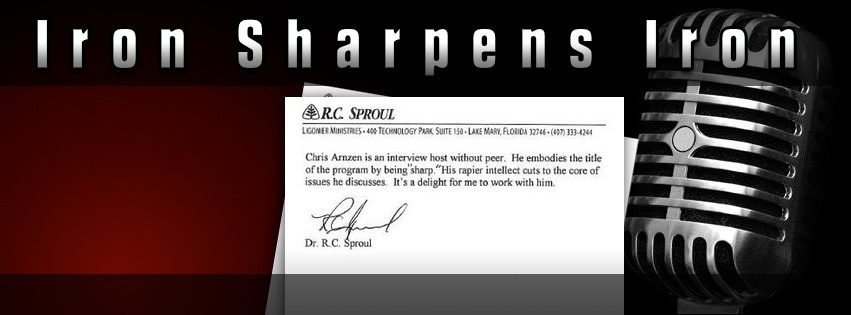




 |
|||||
 |
HEART'S EASE IN HEART TROUBLE: 'Let Not Your Heart be Troubled'
JAMES BURDWOOD (1626-1693)![]()
A BRAND NEW FIRST TIME TITLE FROM NORTHAMPTON PRESS.![]()
Some teach today that being a Christian exempts a person from trials and suffering. But our Lord Himself said, “In this world you shall have tribulation.” In this rare work, the author shows that trouble is the norm for a Christian. He explains why our hearts are not to be troubled and how faith in God and Christ is the best antidote for a troubled heart.![]()
TABLE OF CONTENTS![]()
Publisher's Note ![]()
Life of James Burdwood ![]()
The Epistle Dedicatory ![]()
Introduction ![]()
Chapter 1 -The Text Opened![]()
Chapter 2 - God’s Choicest Saints are Liable to All Kinds of Troubles![]()
Chapter 3 - Christ’s Disciples Are Apt to Be Troubled in Their Hearts![]()
Chapter 4 - What This Heart Trouble Is That Christ Forbids![]()
Chapter 5 - Different Kinds of Fear![]()
Chapter 6 - Believing in God and in Christ Is the Best Antidote![]()
Chapter 7 - What Is it to Believe in Christ?![]()
Chapter 8 - Faith Must Be Acted on Everything About Christ![]()
Chapter 9 - Faith in God and Christ Is the Best Remedy for Heart Troubles![]()
Chapter 10 - Who Christ Is and What He Has Promised![]()
Appendix ![]()
James Burdwood was born at Yarnacombe in 1626 of religious parents. He had his grammar learning at Kinsbridge School and his later education at Pembroke College, Oxford. He was for a while minister at Plympton St. Mary near Plymouth. From there he moved to Dartmouth at the invitation of the town’s magistrates where he continued till the act of uniformity ejected him.![]()
Having a wife and children he set up a Latin school in Dartmouth but was driven from there by the Five Mile Act. He had thoughts of going to America and sold his estate in order to do so, but was prevented.![]()
He then rented an estate at Batson in the parish of Marlborough, saying often it was better for him and his family to work than to be burdensome to others. There he stayed five years and preached for free in his own house, as long as he was permitted, to great numbers who flocked to hear him from the adjacent areas. And when his house would no longer hold them all they met in his orchard.![]()
He met with some disturbance from the Quakers, of whom there were many in those parts. Some of them occasioned him with much trouble and vexation. They took off his doors, rifled his house, seized and carried away his goods, ripped off the locks on his barn doors and replaced them with their own, and forced his wife and children to seek shelter among their neighbors.![]()
When he could stay no longer at Batson he moved to Hicks Down, about a mile from Bedgebury, where he took another farm. During his seven years residence there his old enemies gave him new trouble. He was fined repeatedly for preaching. Yet he kept preaching anyway.![]()
At length he returned to Dartmouth where, after a brief respite of three years, he met again with hard treatment. After two subsequent years at Bowden, he was seized with a violent fit of bladder stones and frequent urination (strangury). When he was slightly recovered he returned once more to Dartmouth where weakness and pains wholly took him off of public work. He bore his afflictions with admirable patience, acknowledging that they proceeded from a loving Father, that he deserved much worse at His hand, and that he hoped this would be all the hell he would have.![]()
Under very sad circumstances he expressed himself thus: “I have lost estate, relations, and health, and yet God is my God still. I am a broken vessel, fit for no work but suffering. Lord, I submit, I submit.” He often used this remarkable saying: “It is better to be preserved in brine than to rot in honey.” God was pleased at length to release him from his sufferings on August 21, 1693, at the age of 67.![]()
He had good abilities for the pulpit and was a practical, popular preacher. His behavior was exemplary. His counsel was sought by all those around him. He was very humble and eminently faithful, yet prudent in giving reproof.![]()
He had 17 children, though only three outlived him. He was a very tender father to them and was greatly concerned about their souls. He daily put up earnest prayers for them with tears. All of them who lived to years of discretion gave him ground to hope that a good work was wrought in them. He bore the death of those whom God was pleased to take from him with remarkable resignation and preached their funeral sermons himself. He was never imprisoned nor apprehended, though often searched after, and was sometimes strangely preserved. He died in the town in which he was ejected after having endured the most exquisite torments from the strangury. This made him the more able to pen two books:![]()
Heart's Ease in Heart Trouble (1691)![]()
Helps for Faith and Patience in Times of Affliction In Three Parts (1693)![]()
1. Samson’s Riddle Spiritualized![]()
2. Orthodox Paradox, or the Greatest Evil Working the Greatest Eternal Good![]()
3. Heaven and Earth Epitomized, or Invisibilities the Greatest Realities![]()
[This material was taken from Samuel Palmer’s The Nonconformist’s Memorial, Volume 1, printed in London in 1775.]![]()
BHV nhsp nhpn spt CWSF nhp50![]()
![]()
BRAND NEW TITLE NOW AVAILABLE![]() SGCB Price: $9.00 (list price $18.00)
SGCB Price: $9.00 (list price $18.00)
50% DISCOUNT OFF NEW TITLE![]()
